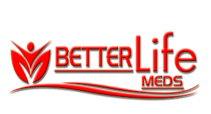Here Are Different Types of Treatments to Expect in Rehabilitation Centers

Anyone might need rehab at some point in life. The term rehab is normally related to substance abuse recovery or vocational services. And it is often designed to maintain, restore, and improve quality of life and maintain functional capability.
Rehabilitation helps both adults and children through intervention methods, which aim at reducing disability and optimizing functioning. These intervention methods may depend on the preferences and goals of patients. Some of the intervention techniques to expect in a drug and alcohol rehab program are the following:
1. Occupational Therapy
Professional occupational therapists offer OT (occupational therapy) to help people who need specialized support to participate in daily activities.
Occupations don’t only refer to your job or work. They can also refer to self-care practices, recreational activities, and daily tasks.
The goal of this therapy is to help people take part in things they need and want to do to live a satisfying and independent lifestyle.
2. Biofeedback Therapy
This kind of treatment concentrates on the connection between your body and mind. It helps many individuals know how to control different voluntary responses in the body, like heart rate and blood pressure, so as to improve general wellness.
In addition, biofeedback offered in drug and alcohol recovery center helps people gain awareness of everything happening in their bodies and how their thinking may affect those changes.
This treatment is non-invasive and doesn’t use medications. Rather, therapies often measure muscle tension, neurofeedback, and skin temperature through a couple of monitors attached to patients.
3. Meditation and Yoga
Meditation and yoga are helpful techniques for managing cravings and staying focused during addiction recovery. For instance, some rehabs even provide meditation and yoga courses.
Yoga covers a collection of mental and physical exercises. Yoga practices don’t have to involve religious or spiritual dimensions.
On the other hand, meditation refers to a relaxation method that helps patients maintain emotional peace, clarity, and calm.
Some studies show that both meditation and yoga serve as therapies for individuals with substance addiction. This is especially true if mental health experts lead the sessions.
4. DBT
DBT (dialectal behavior therapy) is a kind of addiction therapy, which started as a treatment for Borderline Personality Disorder, promoting acceptance of difficult emotions, behaviors, and thoughts.
Dialectal behavior therapy offered in a residential rehab centre or inpatient facility can also help you find a perfect balance between change and acceptance so as to minimize unhealthy behaviors.
5. MI
MI (motivational interviewing) is basically a drug addiction therapy used to resolve ambivalence. This intervention aims to strengthen the commitment and motivation of patients so they can change.
Another benefit of this treatment is that, regardless of being conducted by therapists, those recovering can develop a plan to change over the course of therapy sessions.
The Bottom Line!
There are different kinds of rehab treatments, each made to address a range of addiction issues. What they have in common are the primary goals. But it will be best to consult an expert to recommend the right treatment for your needs.




